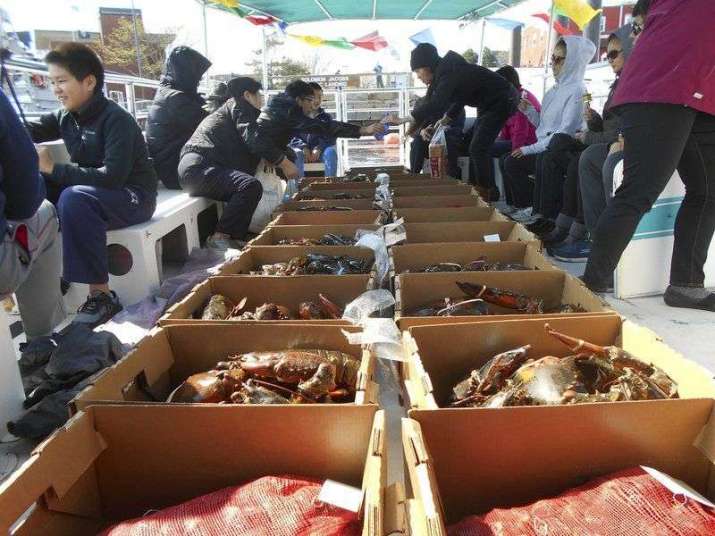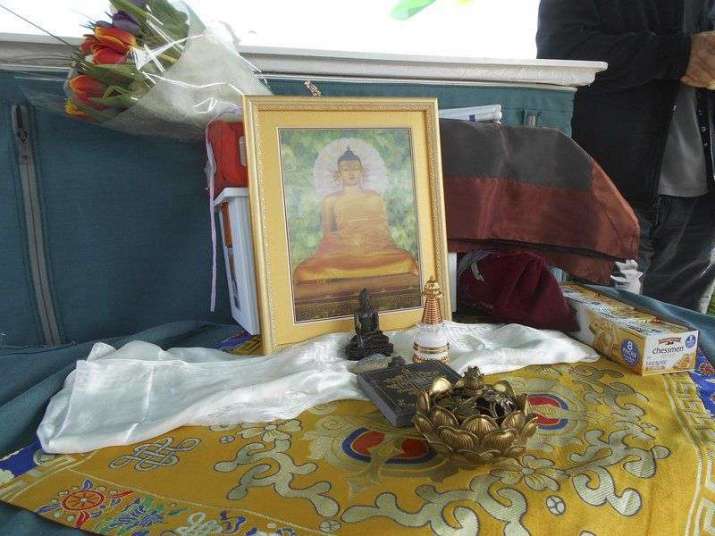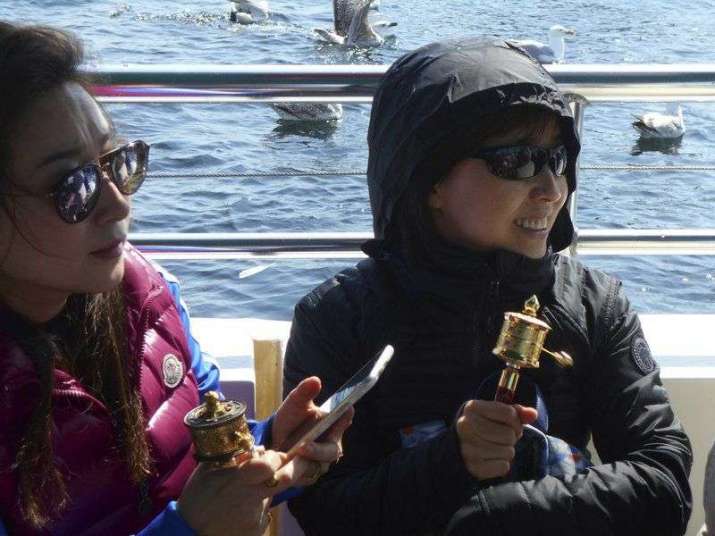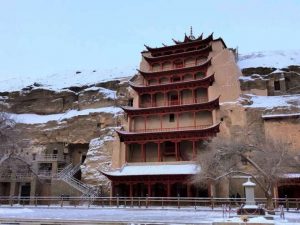
Members of a Buddhist group called the American Compassion Life Association boarded a small boat moored at Gloucester Harbor in Massachusetts on Sunday for a life-release ceremony involving lobsters, clams, and other sea creatures harvested from the area. However environmentalists and conservationists caution than the practice can have unintended and far-reaching consequences.
The practice, which originated in China where it is known as fangsheng (放生), dates back more than 1,000 years and is intended as a means for accumulating spiritual merit through compassionately freeing an animal that would otherwise be sold as property or as food.
The 25 members of the group conduct the practice nearly every month, boarding the small vessel Lady Jillian with freshly caught and purchased marine life. “You have to understand that, for us, all life is equal and there are ways to marry all life back to the world,” said Eva Chen, one of those present. “It’s as if karma brings us here. It is a blessing.” (The Salem News)

The Buddhists decorate the boat for the outings and set up a Buddhist altar near the bow. “We believe that when they go back into the water, their next life will be better,” Chen explained. “We are just spreading love and compassion, and by doing so we believe we give life and gain wisdom.” (The Salem News)
The group are accompanied by their Dharma teacher Geshe Tenley, a Tibetan monk in the Gelug school and a member of the Foundation for the Preservation of the Mahayana Tradition (FPMT). Tenley first began teaching in the US in 2009, and in 2010 was appointedresident teacher at the Kurukulla Center in Medford, Massachusetts, by Lama Zopa Rinpoche, the spiritual director of the FPMT.
“Every life is precious,” said Tenley. “Even if they are only lobsters, they are the same as us. We are just putting them back where they came from.” (The Salem News)
However, the practice of fangsheng has drawn criticism around the world in recent years, with environmentalists listing several worries.

“One concern is that animals are trapped and sold illegally, as in Beijing’s Badachu Park, where suspected bird traffickers market their wares to people looking for fangsheng credit,” journalist Jani Actman wrote in 2017. (National Geographic)
While this is likely not the case in well-regulated environments such as Australia, Canada, and the US, there are still problems with the practice. The Humane Society International (HSI) has warned that many animals die in the process for a variety of reasons, including being over-stressed during transportation, being reintroduced into non-native environments, catching diseases during even brief periods of captivity, or becoming easy prey for predators before they can reintegrate into the area in which they are released.

Furthermore, HSI stated that animals “may be released outside their natural habitats and in groups large enough to establish breeding populations, often wreaking havoc on local ecosystems. Some are invasive species that may threaten the survival of the native species.” (The Guardian)
According to HSI, with hundreds of millions of birds, fish, monkeys, turtles, and other animals captured and released for fangsheng each year, “mercy release has become an industry built on the capture and supply of wild animals, for whom there are devastating consequences of injury, illness, or death.” (The Guardian)
Scholars Henry Shiu and Leah Stokes wrote of the practice: “As this ritual increases in popularity, the demand for animals to release also increases, leading to the commercialization of the practice. Very often, the animals to be released need to be specially ordered for this ceremonial purpose, which logically involves catching otherwise free animals. . . . Such capture causes the deaths of animals, possibly outnumbering those eventually released during the ceremony, in a direct contradiction to the intention of the practice. (Contemporary Buddhism)
References
Shiu, Henry, and Leah Stokes. 2008. “Buddhist Animal Release Practices: Historic, Environmental, Public Health and Economic Concerns.” Contemporary Buddhism. 9 (2): 181–96.
See more
Buddhists return lobsters, shellfish to the sea (The Salem News)
A Buddhist Tradition to Save Animals Has Taken an Ugly Turn (National Geographic)
Why Buddhist ‘fangsheng’ mercy release rituals can be more cruel than kind (The Guardian)












